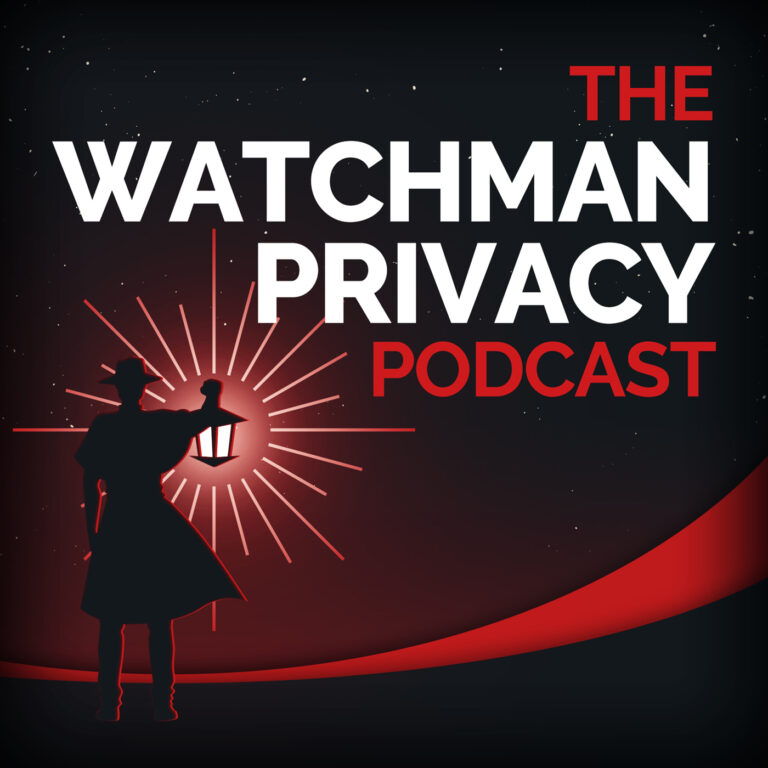Privacy Guru Michael Bazzell abruptly ends all podcasts, what can we learn?
Nobody knows why he stopped, but perhaps there’s still knowledge to be gleamed.

Bazzell quits
What can be learned?
Michael Bazzell was an American privacy author and podcaster. We liked his content a lot, and it’s a shame he stopped doing his podcast. Nobody knows why he stopped, but perhaps there’s still knowledge to be gleamed. One of our readers on Nostr asked us how our content differs from Bazzell.
Different Philosophies
We respect him greatly and this is not a critique, but simply we are targeting a different audience. His content targets a more novice user, and completely stays away from anything remotely political. On the other hand, our content is a little more anti-authority, pro-crypto, more global, and less trusting of low-end consumer privacy products.

Protonmail
For example Bazzell advocates for the use of Protonmail, while as we promote self-hosted email on a VPS. This is more decentralized and private, but requires more effort.
Privacy.com Cards
Bazzell suggests the use of Privacy.com cards, which mask your info to the vendor and your bank. This is convenient but ultimately not anonymous, which never was Bazzell’s goal or intent. On the other hand, at Simplified Privacy, we reject fiat money as legitimate, and only use cryptocurrency. We recommend crypto gift card vendors such as CakePay, CoinCards, and Bitrefill to avoid KYC. Some of these even have debit cards. Ultimately, we follow the philosophy of Agorism, and our goal is to create a parallel society outside the control of big tech and banks.
Google Voice
Bazzell is more focused on Signal using a Google Voice or Twillio number. This is practical for many users and his target audience. While as our philosophy is more focused on the broader picture, and we dislike Signal’s centralization and reliance on Amazon’s servers. Instead, we recommend Session for censorship and socialization with strangers, while as SimpleX or XMPP are preferred for pure security. We thought Bazzell’s statement in his book of “I like Session, but it’s not popular” to be reflective of his attitude of purely pragmatic low-level evasion. While as our philosophy is to actively influence society for individuals to self-realize their technological freedom.
DMV Nomad
Bazzell advocates for the registration as a “nomad” with US state DMVs. This is a great first step for most and very appropriate for his target audience. On the other hand, our goals are very different, and we take the more extreme approach of recommending 2nd passports and physically leaving corrupt countries. We promote Agorism, entrepreneurship, and a Digital Nomad lifestyle, which also is sometimes controversially referred to as Crypto-Anarchy. This philosophy is the rejection of a single government’s control over you and acting as a global self-sovereign individual. This is much harder than moving to another US state, but ultimately more rewarding.

VoIP
Bazzell on podcasts frequently recommends VoIP via Twillio. We also like Twillio VoIP, but philosophically we have different goals than him, and so we do not recommend getting it directly from Twillio, because of their KYC policy. Bazzell said he prefers to avoid 3rd-party “reseller” vendors who use crypto, while as this is our primary approach, even though we acknowledge it costs more to use a reseller. We recommend resellers because not only does the crypto hide your identity and isolate each burner number, but the third party vendor may mask your VPN’s IP from direct interaction with Twillio’s cloud servers. We also highly recommend offshore VoIP from many different countries and providers to confuse and delegitimize surveillance firms.
NextDNS
Bazzell recommends NextDNS, because of their ability to block or evaluate your traffic. While we see the benefits of this, it’s not right for our particular audience, because then you’re trusting just one company to oversee all traffic. For example if you were to use Tor Browser, you’d be getting a new identity each time. While as NextDNS on one VPN would correlate all traffic as you.
SIM Cards
When it comes to phones, Bazzell’s recommendations are a reflection of his focus on convenience to the end user and practicality for the most amount of people in their daily application. For example, he recommends SIM cards INSIDE GrapheneOS phones, and on a podcast he replied to a listener question about external hotspots and routers that it wasn’t that important.

While we acknowledge the practicality and appeal of this to the majority of users, our philosophy is very different and focuses more on those with a higher threat model. We completely dislike SIM cards inside phones because of malware and baseband modem vulnerabilities. Instead, we promote solely EXTERNAL hotspot/router WiFi with VoIP and keeping the hotspot in a faraday bag when you are home. Additionally, we view Google as so hostile, that they can’t even be trusted to manufacture the hardware required for GrapheneOS, so we’re open to non-Google phones with CalyxOS and VM phones on desktop to completely isolate spyware.

WireGuard
Bazzell on his podcast said he only uses OpenVPN, and never WireGuard because of WireGuard’s 2-minute logging of IPs in memory. We respect his decision to recommend this, but we believe it’s not really appropriate for his target audience of novice users. This type of recommendation be more appropriate for Tor users, anti-government journalists, or hackers under extreme or oppressive countries with VPN restrictions. In our subjective opinion, for the vast majority of average Americans (his target audience), the faster speed of WireGuard outweighs the 2-minute IP log.
Since VPN companies can see your IP anyway, it’s unclear what Bazzell is obfuscating. If he wanted to hide VPN use, then ShadowSocks or SagerNet would be more appropriate. Like what is the government seizing a cloud company’s servers, and you’re buying 2 minutes of extra time?
Tor w/ WireGuard
The only time OpenVPN is better than WireGuard is for Tor use, because Tor is slow due to latency, but WireGuard is fast due to through-put. But again, Bazzell’s target audience isn’t on Tor, so he’s just recommending they slow their internet connection down, for the limited benefit of slightly hiding VPN use, in a country where VPNs are legal anyway. In fact, we argue that WireGuard is much faster with multi-hop, which would obfuscate traffic more from global passive surveillance than one-hop on OpenVPN.

System76
Bazzell has done numerous podcast episodes discussing System76 Linux computers with PopOS. We think this is great, and would like to add on that System76 is our main recommendation for those coming from Mac/Apple. Not only is this specific audience used to getting both the hardware and operating system bundled together from the same vendor, but Apples can’t dual boot with Linux (easily) like Windows can. Additionally, Chris Titus has a guide on making PopOS aesthetically look like a Mac.
pfSense
Regarding Bazzell’s pfSense recommendation, this was a good idea up until pfSense switched licenses and is shifting away from FOSS. Now we recommend OPNsense. But this happened AFTER Bazzell’s podcasts/books, so he gets no blame.
Conclusion
You’d get a lot out of subscribing to find out about new content by Session messenger, via RSS feed, or by weekly email, follow on Nostr. In summary, Michael Bazzell was a great and influential privacy guru. We highly recommend his books and podcasts for anyone whose new to these concepts. However, our content here at Simplified Privacy is targeted for a different audience and has different philosophies, recommendations, and purpose. Bazzell’s focus is to reduce metadata as much as possible and practically hide, all while maintaining a “normal” life. While as our philosophy is self-sovereign freedom, encryption as identity, and a rejection of the status quo. But regardless of our differences in approach, I can not emphasize how much our company genuinely respects you.
Wherever you are Bazzell, you will be missed. I listened to nearly every episode.
If you really want to learn and take your privacy to the next level, Access our VPN, and subscribe to our new content via: Podcast RSS, Session list, Nostr, Bastyon, Article RSS, or join the Signal Group
Related Posts

Libre Solutions Podcast Covered Our Project
HydraVeil, Nostr, Arweave, & our legal system
Jun 29, 2025

Who Watches the Watchman?
Gabriel Custodiet Quits
Apr 26, 2025

Stop asking which is better
Instead ask: Which is better at what?
[SP]
Apr 20, 2025

Stop Voting: Freedom through Tech
deprive governments of power with technology
[SP]
Oct 10, 2024